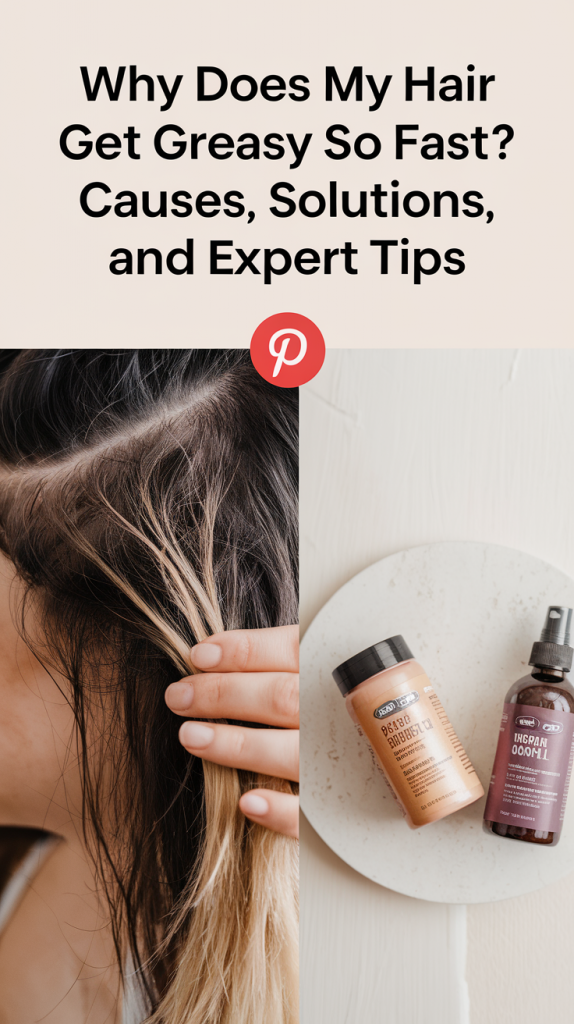Why Does My Hair Get Greasy So Fast?
Have you ever washed your hair, only to notice it looking greasy by the end of the day? I’ve faced this frustration too, and it’s more common than you might think! Greasy hair is usually caused by a combination of factors, from genetics to improper care. Let’s uncover why this happens and explore practical solutions that will leave your hair feeling fresh, light, and healthy.
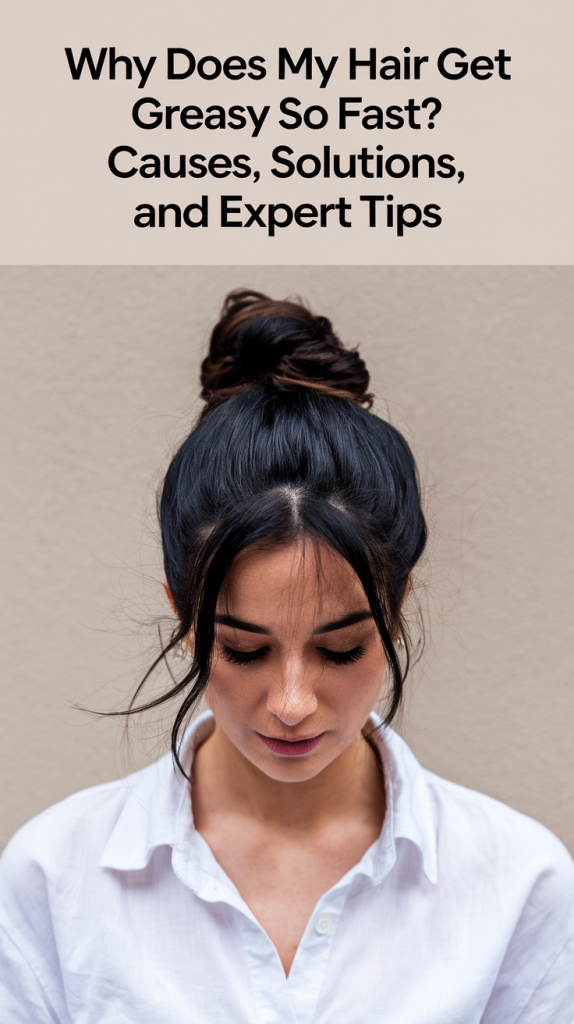
Why Is My Hair Getting Greasy So Quickly?
The issue of greasy hair boils down to sebum overproduction. Sebum is a natural oil produced by sebaceous glands to protect and moisturize your scalp. While essential, excess sebum can make your hair oily. Here are some key factors that influence how fast your hair gets greasy:
Hormonal Changes
- Hormonal fluctuations during puberty, pregnancy, menopause, or while using birth control can significantly increase oil production. Androgens, in particular, stimulate sebaceous glands, leading to excess sebum.
Your Hair Type Matters
- Straight and fine hair tends to spread oil faster along the shaft compared to curly or coarse hair. This is why people with finer hair often complain about greasiness.
Over-Washing or Under-Washing
- Over-Washing: Stripping your scalp of natural oils can trigger the sebaceous glands to overcompensate, leading to more oil production.
- Under-Washing: On the flip side, infrequent washing allows sebum, dirt, and dead skin cells to accumulate, making your hair look greasy.
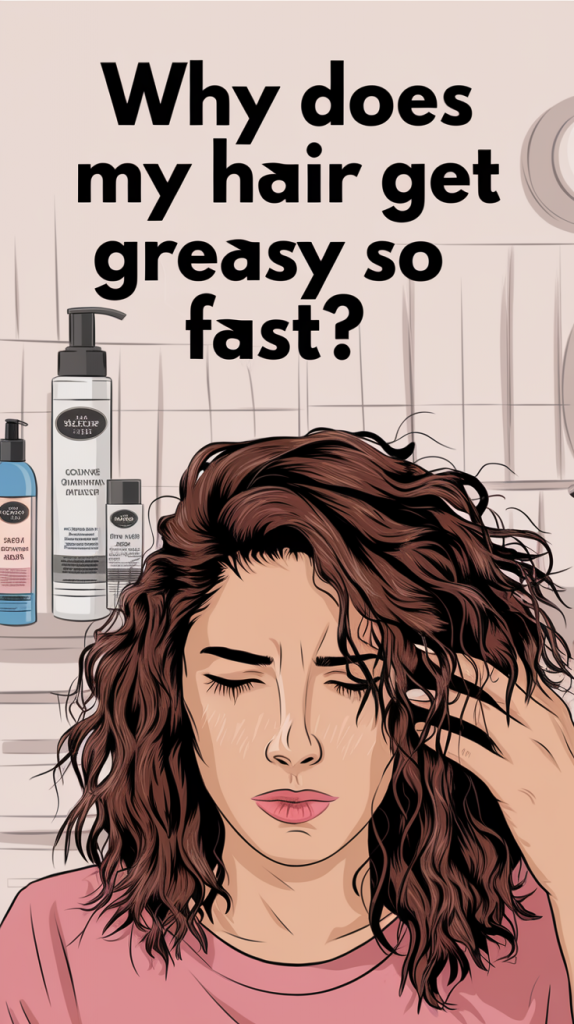
Tables for Quick Insights
Causes of Greasy Hair
| Cause | How It Contributes to Greasiness |
|---|---|
| Hormonal Changes | Increased sebum production due to androgens during puberty, pregnancy, etc. |
| Hair Type | Straight hair spreads sebum quickly compared to textured hair. |
| Overuse of Products | Heavy conditioners or styling products lead to buildup on the scalp. |
| Diet | Diets high in sugar or dairy increase oil production. |
| Environmental Factors | Humidity and pollution stimulate oil secretion and clog pores. |
How Often Should You Wash?
| Hair Type | Recommended Washing Frequency |
|---|---|
| Straight and Fine Hair | Every 1–2 days to prevent sebum buildup. |
| Curly Hair | Every 3–4 days; natural curls are less prone to spreading oil. |
| Coarse Hair | Once a week to retain natural moisture. |
Practical Tips to Manage Greasy Hair
Greasy hair is manageable with the right hair care routine and a few lifestyle adjustments. Here’s how to keep those oily locks under control:
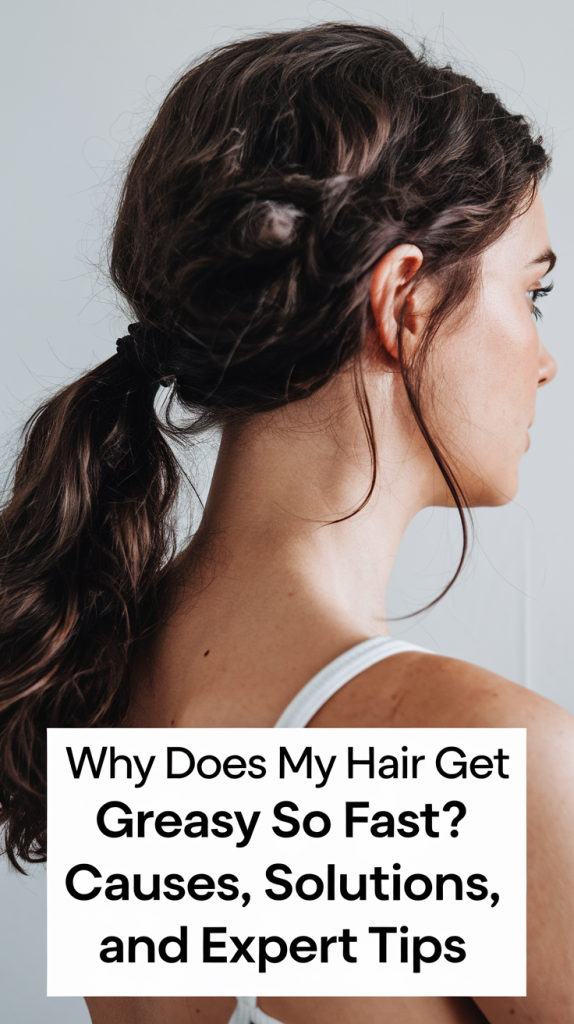
Wash Strategically
- Use a mild, clarifying shampoo 2–3 times a week to remove excess oil without stripping moisture.
- Focus on the scalp when washing; the ends of your hair don’t need as much cleansing.
Opt for the Right Products
- Avoid heavy conditioners; instead, apply lightweight formulas to the ends of your hair only.
- Use dry shampoos on non-wash days to absorb excess oil without overwashing.
Exfoliate Your Scalp
- A gentle exfoliating scrub once a week helps remove buildup of dead skin cells, oil, and product residue.
- Look for products containing salicylic acid for effective exfoliation.
Lifestyle Adjustments
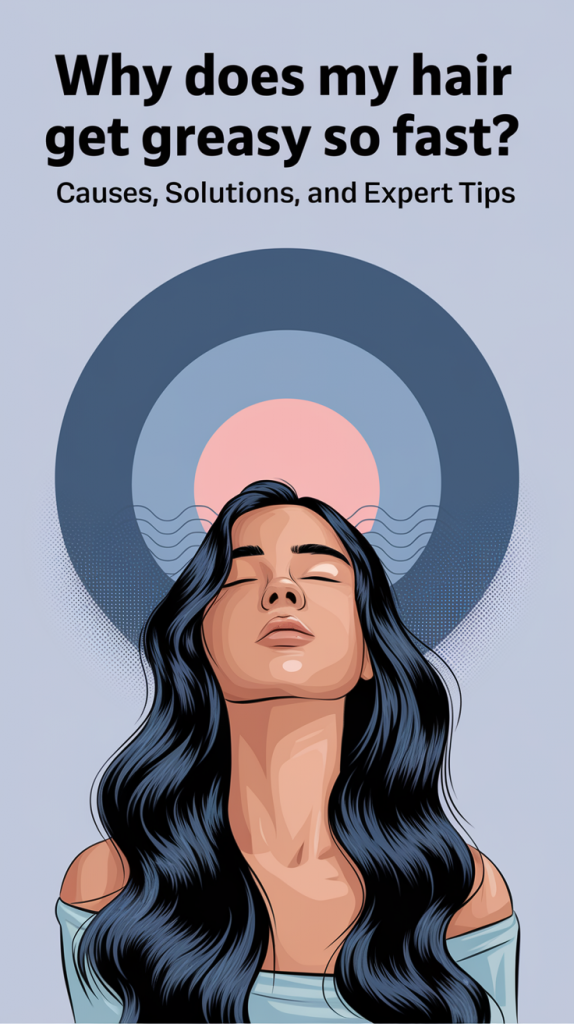
Diet and Stress
- Reduce your intake of sugar, dairy, and processed foods, as they can trigger more sebum production.
- Engage in stress-reducing activities like yoga or meditation to regulate hormone levels.
Pillowcases and Hair Accessories
- Wash your pillowcases frequently (at least twice a week) to prevent oil transfer.
- Avoid tight hats or headbands that trap heat and stimulate oil production.
Addressing Hair Care Myths
Many myths surround greasy hair, and they can worsen the problem if followed blindly. Let’s bust a few of them:
- “You shouldn’t wash your hair daily.” While frequent washing can sometimes strip oils, individuals with very oily hair may benefit from daily washing using a gentle shampoo.
- “Dry shampoo is bad for your scalp.” Not true! Dry shampoo, when used in moderation, is a lifesaver for absorbing oil and extending time between washes.
- “Brushing frequently reduces grease.” Over-brushing stimulates the sebaceous glands and spreads oil down the hair shaft.
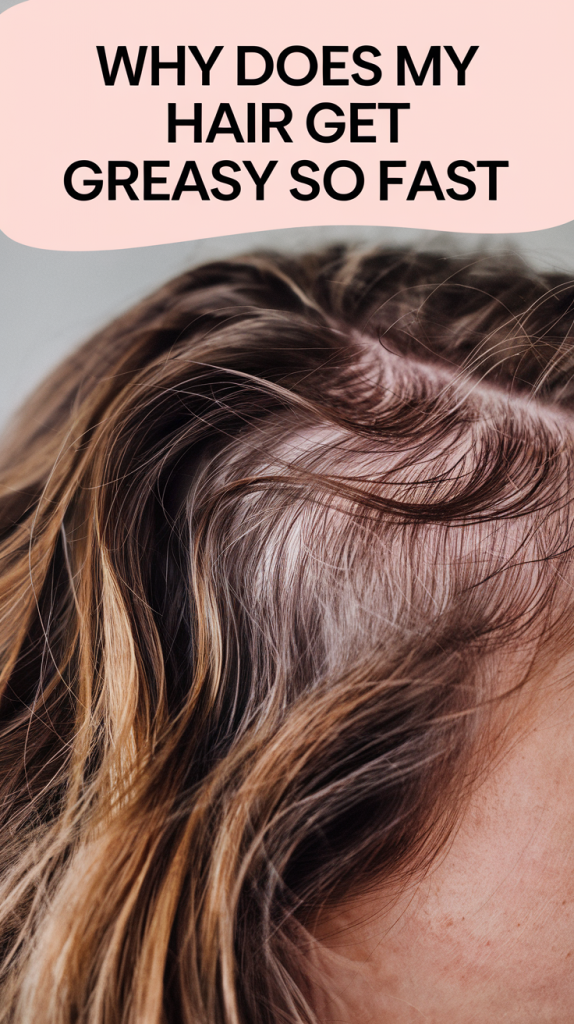
Natural Remedies for Greasy Hair
If you’re into natural solutions, these remedies are easy to try at home:
- Apple Cider Vinegar Rinse: Mix 1 part apple cider vinegar with 2 parts water and use it as a final rinse to balance your scalp’s pH.
- Lemon Juice Treatment: Mix lemon juice with water and apply it to your scalp to reduce excess oil.
- Aloe Vera Gel: Apply fresh aloe vera gel directly to your scalp for its soothing and oil-controlling properties.
When to Consult a Dermatologist
Sometimes, greasy hair isn’t just about improper care or genetics. Scalp conditions like seborrheic dermatitis or fungal overgrowth can worsen greasiness. If you notice persistent redness, itchiness, or severe oiliness, it’s time to seek medical advice.
Conclusion
Greasy hair can feel frustrating, but it’s a manageable problem with the right care and understanding. By identifying the root causes—whether hormonal, dietary, or environmental—you can tailor your routine to achieve healthy, balanced locks. Try incorporating the tips mentioned above, and don’t forget to share your experiences and solutions with others!
FAQs
How often should I wash my hair if it gets greasy quickly?
You should wash your hair every 1–2 days using a mild, oil-controlling shampoo. Adjust this frequency based on your hair type and lifestyle.
Can my diet really affect greasy hair?
Yes! Diets high in sugar and dairy can lead to excessive oil production. A balanced diet with whole foods can improve scalp health.
Should I use conditioner on oily hair?
Yes, but only apply conditioner to the ends of your hair to prevent adding oil to your scalp.
Can stress make my hair oilier?
Absolutely. Stress increases cortisol, which can trigger more sebum production and lead to greasier hair.
Are there specific hairstyles to help with greasy hair?
Loose buns or ponytails can minimize oil transfer from the scalp. Avoid tight hats that trap heat.
